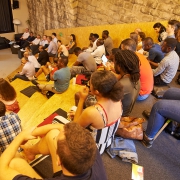 I was wondering what are the biggest problems we have on earth today. I know there are thousands, millions or even billions of problems to solve. I get asked so often on Quora or at startup events what problems do actually exist that could be solved, that I compiled this list of 100+ global problems worth solving, after a day research on the Internet and my own observation.
I was wondering what are the biggest problems we have on earth today. I know there are thousands, millions or even billions of problems to solve. I get asked so often on Quora or at startup events what problems do actually exist that could be solved, that I compiled this list of 100+ global problems worth solving, after a day research on the Internet and my own observation.
Of course this list is far from being complete. It’s just a tiny start.
CONTRIBUTE
And you can add to this list of “global problems worth solving” on our Google Drive. Feel free to add yourself to the contributor list. Do not spam it – please.
We will update this post once in a while.
100+ global problems worth solving
(1) Building a platform that collects problems, anybody can contribute and be curated by the community.
ENVIRONMENT
(2) Inventing new material or techniques to replace plastic
(3) Inventing new techniques, and materials to replace paper
(4)Inventing new techniques and products, recycling any given material
(5) Inventing new materials replacing plastic bottles and cups
(6) Creating new ways to package food (100’s of varieties of food) environmentally friendly
(7) Finding artificial, yet environmentally friendly replacement for wood to reduce deforestation
(8) Inventing new motors that neither use electricity nor fuel
EDUCATION
(9) Finding ways to augment education in conventional schools and universities with highly relevant education
(10) Creating social education programs that can run in parallel to schools, universities or jobs
(11) Offering classes for undergrads, how to get successful and rich
(12) Providing better base education programs on political know how
(13) Providing better education programs on the general concept of economies
(14) Providing better education on how wars are started and how peace is achieved and maintained today
(15) Creating more tangible lifelong learning concepts
(16) Creating more universally applicable career guidance mechanisms or platforms
(17) Creating solutions to shift from an “all learn – all work” model to a more balance model
ENERGY
(18) Exploring new ways to generally reduce and safe energy
(19) Providing a more transparent and plausible energy consumption prediction for the scenario that most people on earth are out of poverty, living in newly developed countries
(20) New ways to harvest energy from bio thermal energy sources
(21) New ways to harvest solar energy
(22) New ways to harvest hydro energy
(23) Finding ways to transmit energy created on the moon, down to earth
(24) Identifying new ways to harvest energy from unidentified sources
(25) Finding all new ways to store electric energy in bigger volume and less in size and weight
(26) Smart energy re-distribution for those who produce excess energy that can be provided to others
PRODUCTS & TECHNOLOGY
(27) Lower cost reliable Internet connections
(28) Independent and reliable “News & Information Publishing” organization
(29) Better, social media integrated search engines
(30) All new and modern operating systems
(31) Fully integrated business application tools
(32) Meteorology technology provider not only for weather forecasts but for everything agricultural
(33) Generally available intelligent traffic lights, connected to a traffic flow system, but autonomous features
(34) Low cost mini satellites to explore earth and space, provide data hubs, accessibility and more
(35) Omnipresent, inexpensive and easy mobile payment system
(36) Building robots for all kinds of dedicated tasks such as cleaning shoes, planting crops, cleaning windows, etc.
(37) The whole range of wearable products counting, watching, recording, measuring all kinds of things underway
(38) Situation dependent automatically changing materials to turn a lofty t-shirt into a rain covering shirt
(39) Smart materials that change their behavior based on environmental conditions i.e, taking the carbon out of carbon dioxide and returning the dioxide back to air
(40) Smart Contract development for cryptocurrency agnostic blockchain like media
(41) Universal low voltage power connection system that handles everything from a single wall plug to staggering distribution
(42) Creating universal ultra small IOT devices that allows any product to be programmed by a smartphone including remote controls, refrigerators, heaters, air conditioner, lights – anything. One interface for any product in the future.
(43) New better zipper that do not stuck, break or derail
WATER & SANITATION
(44) New ways to get to clean water
(45) Better ways to turn salt water into sweet water
(46) New ways to manage waste water in rural areas
(47) Cheaper ways to produce sanitation products i.e. toilets
(48) All new toilette models alleviating paper use
(49) More efficient ways for flushing toilets than using precious water
(50) New product for cleaning replacing bathtubs and showers or make their use a less used luxury
(51) More water consumption sensitive products such as water cranes, showers, garden watering systems
FOOD & DIET
(52) New ways to offer unified insights into the ingredients of food in any supermarket
(53) Ways to eradicate factory farming (mass animal farming)
(54) More scientifically proven and generally understood advice to a healthy diet
(55) New ways to provide food portions in smaller sizes to stimulate reduction of food consumption and reduction of food waste
RESEARCH, DATA & INFORMATION
(56) Finding new ways to research all the facts and sources of climate change
(57) Finding new ways to deal with climate change and leverage the development so far
(58) Finding ways to predict climate change more precisely for the next 50 years and provide meaningful indications for the agricultural industry
(59) Better ways to organize research in general, creating more unbiased data.
(60) Catalog of things that could be done with AI and inspires developer
(61) An AI development system that could be used by virtually anybody
(62) Research for a more rational view of the evolving powers of Artificial Intelligence
(63) Creating algorithms that focus on environmental dependencies of new technologies
(64) Identify new ways that help certain countries to get off of the data protection hysteria
(65) New suggestions for data privacy models that give more power to the individual
(66) Developing ways to deal with the general risk of eradicating life through asteroids
(67) Developing scenarios to evacuate earth if needed, even though we would probably take 1,000 years to find the technical possibilities.
(68) New tools and platforms to interact with governments and communities
(69) New apps that cover all of the problems, allow to contribute in all kinds of ways and see reports
(70) 3-D printing companies, producing unique products, spare-parts, artificial organs, and more
(71) Cyber security improvements to significantly reduce or even alleviate hack attacks
(72) Data ownership mechanisms, rules and technology that makes sure that personal data are controllable by its owner
INDUSTRY
(73) Providing better technology for customer experience management
(74) Providing a new value system for corporate balance sheets involving employee contribution
(75) Providing new ways to offer equity to highly innovative employees
(76) Develop new systems that can track the degree of innovation development
(77) Design new systems for customer interaction with corporations
(78) Design new corporate employee education systems including lifelong learning
(79) Create a fortune 100,000 leader board with indexes addressing environmental, employee and other key aspects
(80) Creating all new insurance business models that provide much more contract transparency and easier to deal with
(81) Online grocery stores with home delivery like a few in Germany or Switzerland
(82) New media business models, disrupting the user unfriendly monopolies
(83) Much easier booking systems for public transportation anywhere in the world
(84) Creating systems that alleviate waiting (in line, at doctors, at shops, at bus stops….)
SOCIETY
(85) More effective ways to deal with birth control in times where we help more people to survive
(86) Starting large scale research that can only be done with tens of thousands of supporters
(87) Finding better ways to deal with migration, integration and return mechanisms
(88) Finding ways to replace prisons with socially effective methods of societal reintegration
(89) Finding new policies to deal with people ignoring the generally accepted rules of societal coexistence
(90) Finding solutions to get to a broader reach of well being for all humans
(91) Developing new political concepts or new varieties of democracy that is more applicable in today’s world
(92) Developing new job concepts for people who work on social or macro economic solutions to be financed
(93) Developing new concepts for city creation addressing the bigger problems of today’s cities
(94) Developing new and holistic ways to reduce traffic congestion in larger cities
(95) Developing new logistical concepts to bring the huge amount of products directly to the citizens
(96) Developing new techniques to transport the remaining waste to the designated areas without the current waste disposal chain
(97) Finding new methods to alleviate corruption in government and other large organizations
(98) Finding new mechanisms to make governments more accountable, providing rewards and punishment solutions based on their achievements relative to their promises
HEALTHCARE
(99) New ways to provide a more balanced healthcare for the various developed nations
(100) New ways to provide healthcare in the first place for developing nations
(101) New ways for mental health care
(102) New ways to produce cheaper medicine or secure living without medicine
This list of “global problems worth solving” will sooner or later grow much bigger. We are looking forward to your inputs.

 Pretty much every car manufacturer on the planet are testing their autonomous cars here in Silicon Valley. Resources are plentiful, rules and regulations, as innovation friendly as possible without going overboard. And again the accumulation of knowledge is unparalleled. We spoke with a few test drivers and physically sensed the excitement, the community and the open exchange. The learn every 24 hours new things. Then share and compare in Silicon Valley style open and freely and learn 50 times as much from all the others. Knowledge aggregation and rapid execution has always given the Bay Area its technological edge. And since the workplace of these ever driving software developers, analysts and testers is not in a coworking space, they meet at parking lots of super markets to share and compare.
Pretty much every car manufacturer on the planet are testing their autonomous cars here in Silicon Valley. Resources are plentiful, rules and regulations, as innovation friendly as possible without going overboard. And again the accumulation of knowledge is unparalleled. We spoke with a few test drivers and physically sensed the excitement, the community and the open exchange. The learn every 24 hours new things. Then share and compare in Silicon Valley style open and freely and learn 50 times as much from all the others. Knowledge aggregation and rapid execution has always given the Bay Area its technological edge. And since the workplace of these ever driving software developers, analysts and testers is not in a coworking space, they meet at parking lots of super markets to share and compare. I’ve been asked so many times that I felt it would be good to write a blog post.
I’ve been asked so many times that I felt it would be good to write a blog post.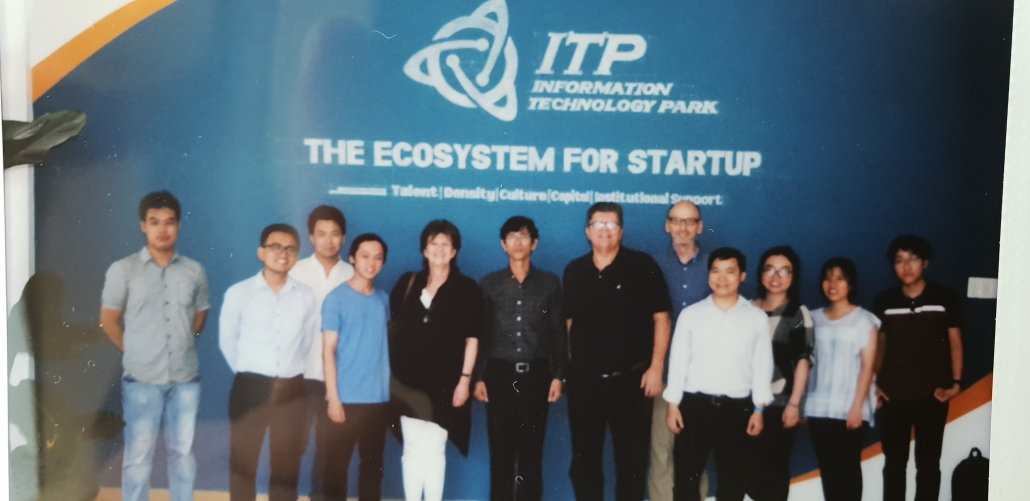
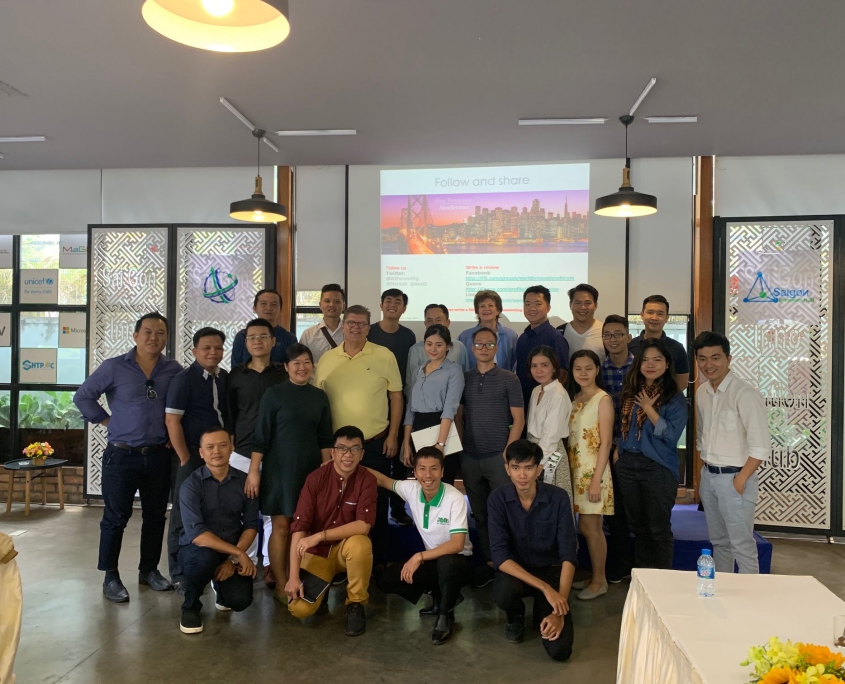
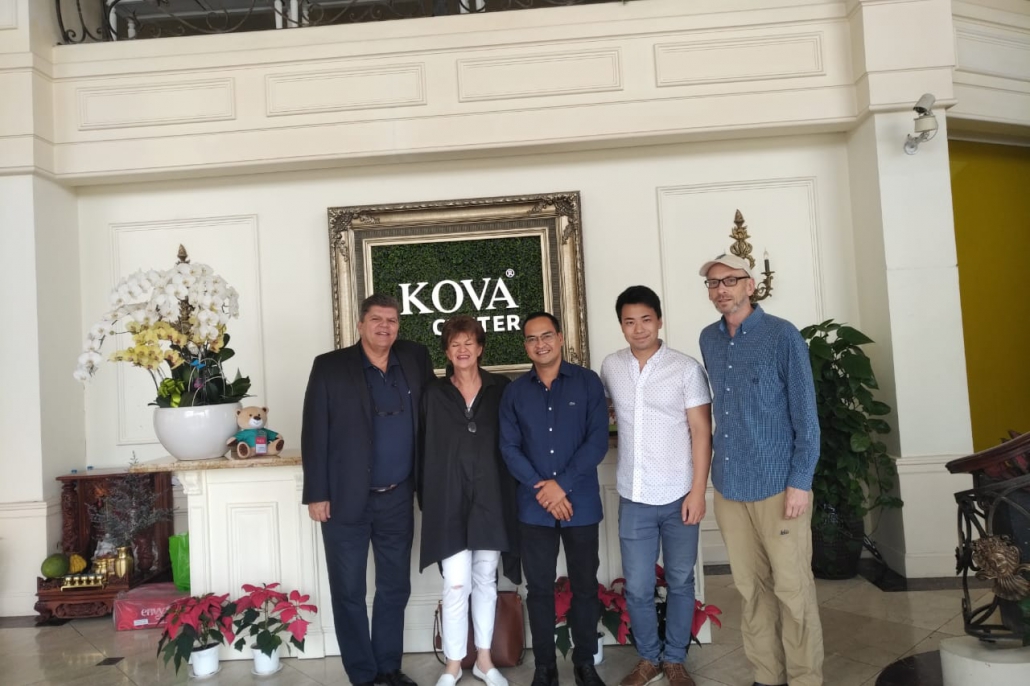
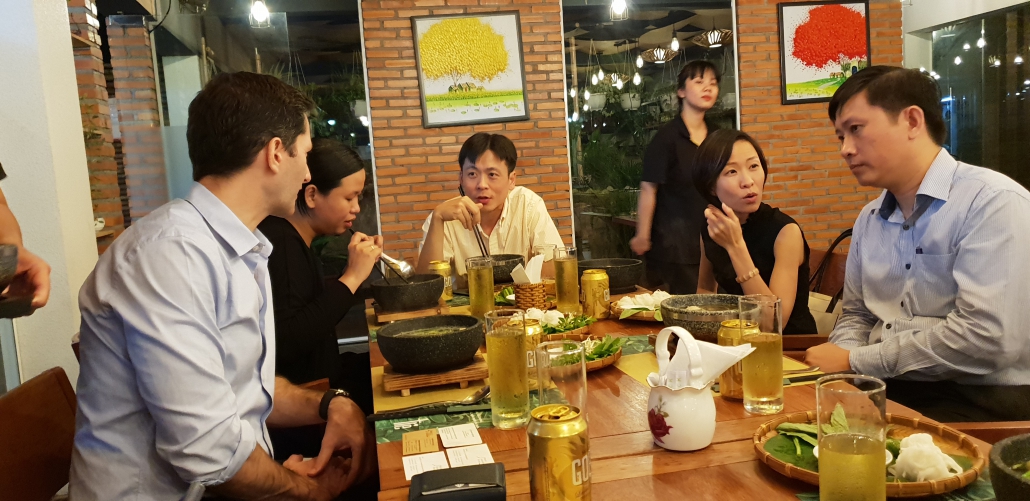
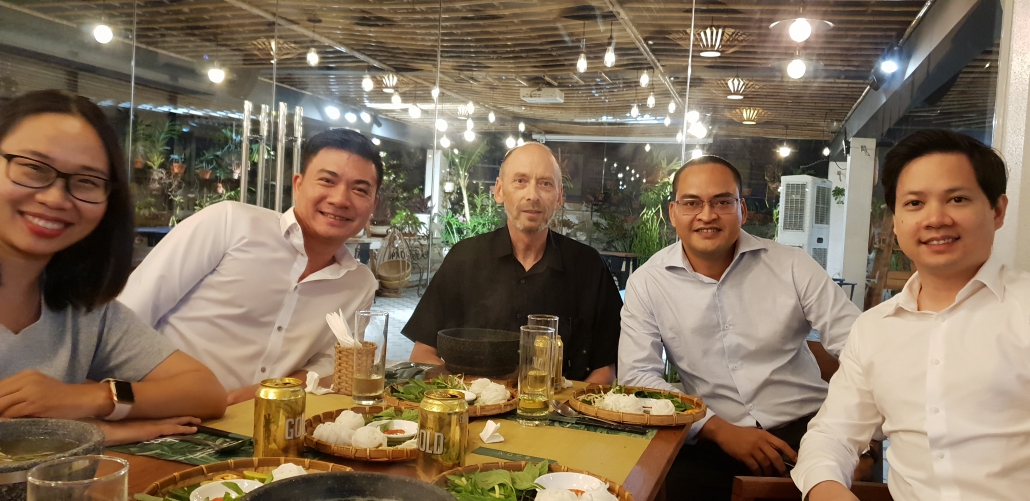
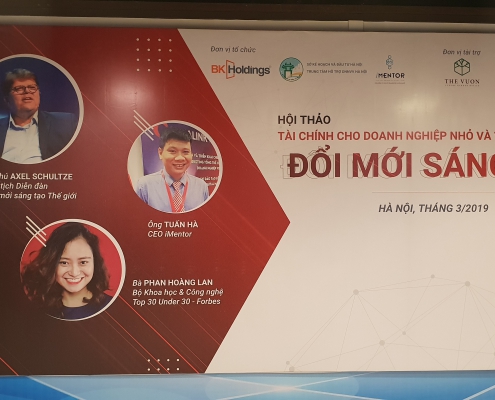
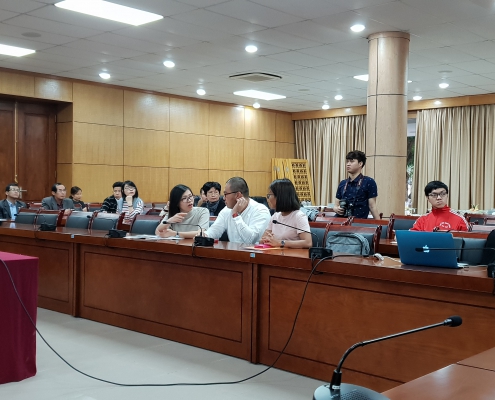
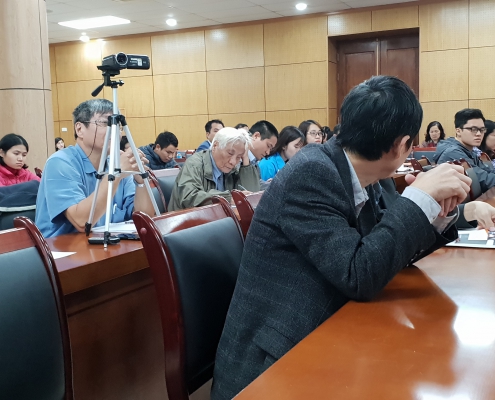
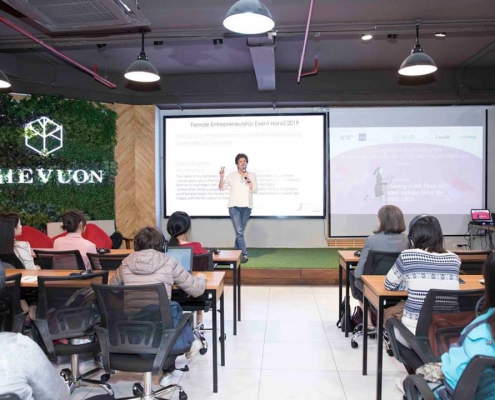
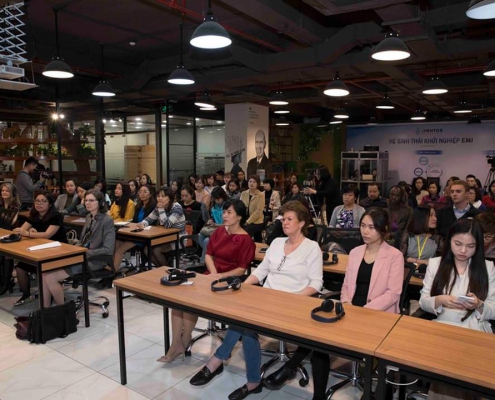

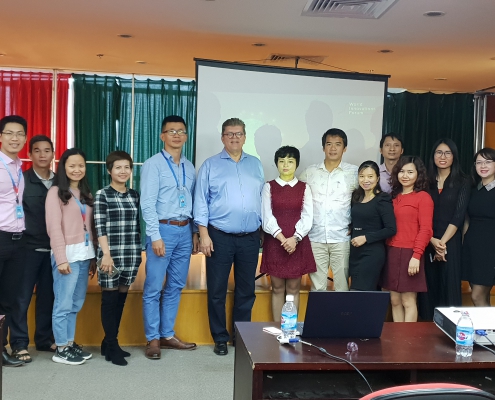

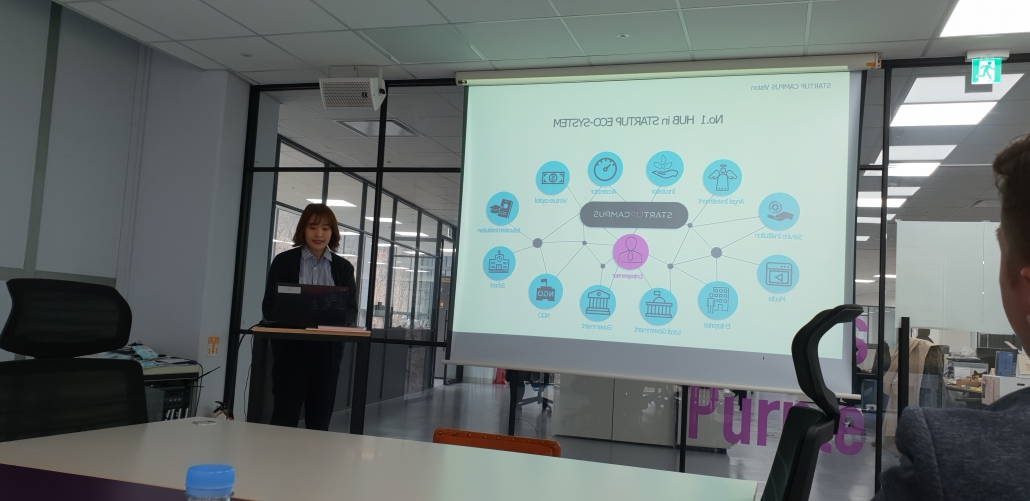 Introduction to the Seoul Innovation Ecosystem, it’s focus to take business global and its quest to build more Samsung, LG or Hyundai type companies.
Introduction to the Seoul Innovation Ecosystem, it’s focus to take business global and its quest to build more Samsung, LG or Hyundai type companies.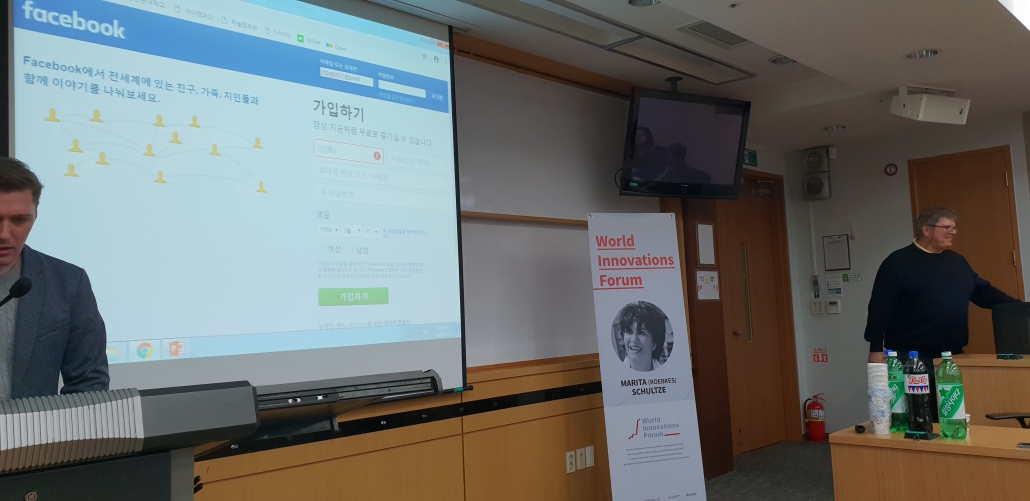
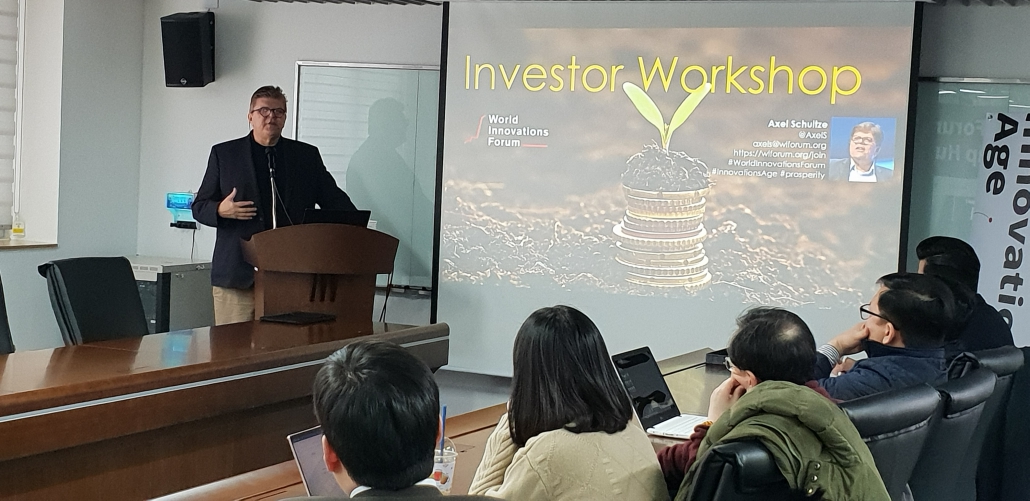

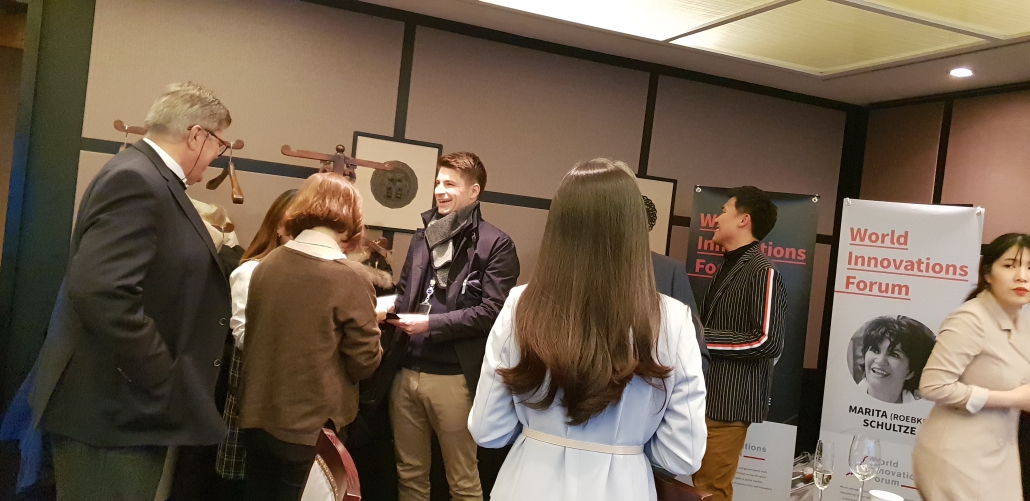
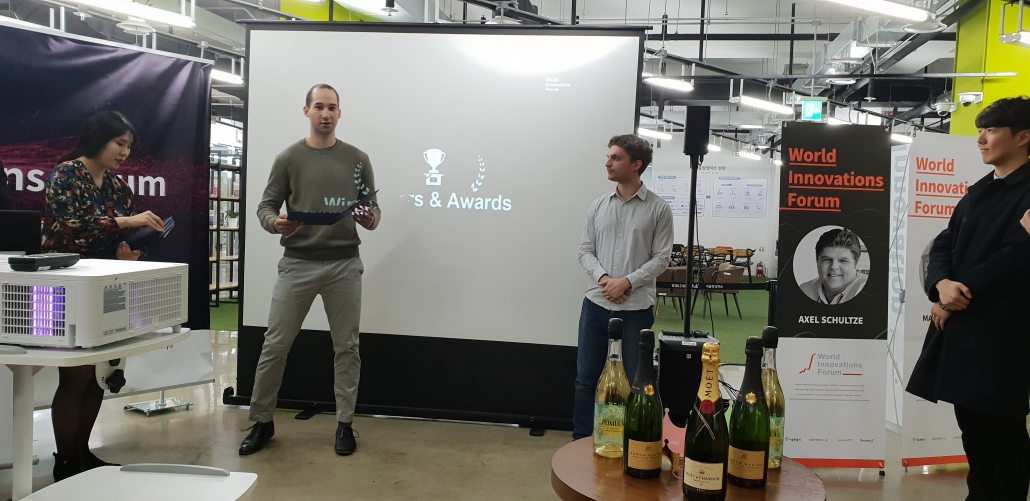
 Do you really need a vision for your business? You don’t NEED anything, it’s YOUR business! But here is what a VISION can do for you.
Do you really need a vision for your business? You don’t NEED anything, it’s YOUR business! But here is what a VISION can do for you.